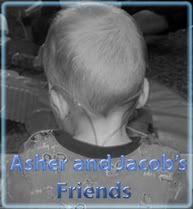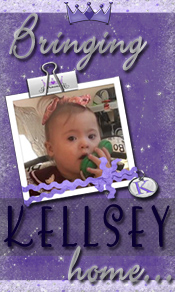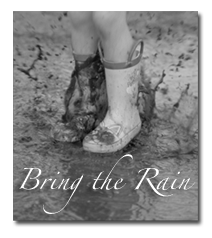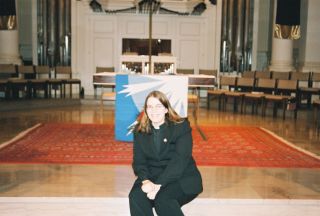“Where Our Treasures Are”
“For where your treasure is, there your heart will be also.” This short verse became one of my favorites when I first began reading the Bible. I was about 14 at the time, and had justlost one of my best friends.
“For where your treasure is, there your heart will be also.” This short verse became one of my favorites when I first began reading the Bible. I was about 14 at the time, and had justlost one of my best friends.
We had only known each other for about 6 months, becoming fast friends when I moved to Petersburg, Alaska. On my first day of school, Iza was one of the first people to come up to me and introduce herself. She had grown up in Poland and knew what it was like to be the new kid in school. Soon, her, myself, and about 4 other girls became a close-knit group who did everything together.
Although she wasn’t the best influence on me, she smoked and knew how to cause trouble, she was someone I could confide in. I cherished our friendship and she made me feel secure in a place that was so unfamiliar. I was so grateful to have people in my life I felt I could lean on and speak to openly.
That all changed one February morning. On the bus to school, an ambulance drove by, an unusual site for our small town. I did not think too much of it, and just let it drift from my mind. When I arrived at school, however, I knew something was not quite right. As it turned out, our dear friend Iza collapsed on her way to the bus and instantly died. We would find out later she had a heart condition that had never been diagnosed.
Although I had experienced the early death of a classmate a few years back, this loss was so different. She had become one of my closest friends. The loss devastated me and I think forever changed who I was. The grief felt unyielding and my other friends and I tried to work through the emotions that came in waves and the questions that naturally flowed with them.
This single experience I believe had the greatest influence on my relationship with God. I became angry, questioning how a loving God could take away someone so young, yet I also clung to my faith finding comfort in the presence of Christ that I felt so strongly. It was a time of uncertainty and growth for me. It was also a time where I came to have a greater understanding of what Jesus meant when he said, “Do not store up for yourselves treasure on earth, where moth and rust consume.” I realized that nothing on earth is permanent and no matter how hard I try, I cannot control the world around me.
Iza’s death was not the first upset I had experienced during that period in my life. We had just left the only home I ever knew back in Seattle. My life long friends were all back there. My parents had only separated about a year and a half prior, and my father and new stepmother were back in Seattle. How much more could I really take? My parents marriage was gone, my home in Seattle was gone, my friend Iza was gone. Nothing in my life could remain stable, other than Christ’s presence in my life.
Today, Ash Wednesday, is a day when we are reminded of our own mortality. As the ashes are smudged on our foreheads, we are faced with the realization that we are frail, imperfect, and solely dependent upon our Lord and Savior. The treasures that surround us in this world will perish, the only thing that will remain steadfast is our God.
The loss of my friend was the first time I really reflected on how everything in our lives can be lost in an instant. In our world, we strive to gain control of our finances, of our health, of our actions. We create laws as a way of controlling our society, and put locks on our doors in order to prevent chaos. When our health fails, we find every specialist in the country to help us prevent what will ultimately be an inevitable death. We crave the ability to prevent anything from occurring in our lives that would upset the stability we have strived to build.
It is during those times when everything falls apart around us that we are reminded of that simple yet complex phrase, “you are dust, and to dust you shall return”. When we feel the ashes upon us, when we look around at each other at the end of this service, we are reminded of the reality that we have no control. We cannot control the fact that we will die, no matter how much we want to. At some point, treatments will fail. Whether this is in weeks, months, or 20 years down the road, our bodies will give out.
We cannot control the fact that time and time again our peers will fail us. Classmates will betray us, saying things behind our backs. Secrets will be spilled in the uncontrollable need to gossip. At work, someone will want to get a promotion badly enough that they will go around us in order to get ahead. We cannot control the fact that at times, our laws will not be able to prevent us from being harmed. Bad people will still lurk in corners, selling drugs to our children, mugging the innocent, finding a way to break into our homes. 14 year old girls will still die. Parents will divorce. We will still be uprooted from places that make us feel secure. Our world is broken and full of broken people.
This is why Jesus tells us to store up treasures in heaven. We are not to depend upon a broken and fallen world, we are to depend upon a perfect and loving God. A God who has given us the greatest gift to ever be offered, the gift we will celebrate at the end of this 40 day journey. It is the gift in knowing that we do not have to strive for control, because the control is in his hands. It is the gift that although we mourn now, soon that mourning will be turned into joy. It is the gift of knowing that we are forgiven, time and time again, because we are given the gift of grace through the suffering of a loving God.
As we take this 40 day journey of Lent, we are reminded of our brokenness and dependence upon Christ. This is a time to deepen our spiritual lives, to look beyond our own brokenness and need to control our world, and look to the one who is ultimately in control. We cannot always prevent bad things from happening in our lives, but we can use these situations to look deeper into what it means to be dependent upon Christ.
When my friend died, I was compelled to go deeper in my journey of faith. Her death occurred right around this time of year, and it was my first introduction to Ash Wednesday. As I had the ashes smudged on my forehead and for the first time heard the words “you are dust and to dust you shall return”, I took time to really reflect on what those words meant. I was able look beyond the darkness of my grief, and looked towards the cross that was now marked on my forehead. I realized that even though we are so imperfect and our world is broken, that the ultimate gift is found on the cross. As we go through the dark times in our lives, as we make this journey called Lent, it leads us out of the darkness and into a new creation. A creation that is full of life, hope, and grace.
Although we are mere mortals, full of sin and frailities, we are gifted in knowing that the greatest treasures of our lives lie not in this world but in Christ our Savior. In the ashes we receive today, we are given a sign to remind us of our mortality and are need for repentance, yet we are also reminded of the grace that God gives us in the gift of eternal life. That is where our treasure lies. For all of these things in our world that we depend on will eventually pass away, but we can be sure that no matter what, Christ will always remain. Amen














